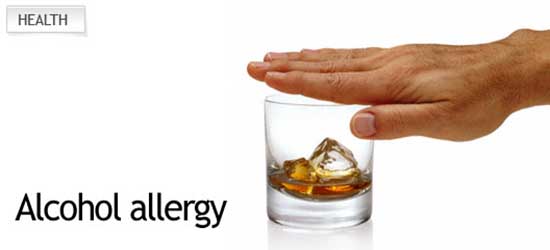-
Genuine Alcohol Allergies Are Uncommon
Real alcohol allergies are infrequent nevertheless the repercussions can be extreme. The things many people believe to be alcohol allergy is really a reaction to an allergen in the alcohol. Common allergens in alcohol consist of:
*barley
*hops
*yeast
*rye
*wheat
*gluten
*histamines (commonly found in red wine)

*sulfites (frequently found in white wines)
People frequently call alcohol intolerance an alcohol allergy-- and the other way around. Individuals who truly have a alcohol allergy ought to refrain from drinking.
What Makes Someone Allergic to Alcohol?
Research into alcohol allergies is restricted. ALDH2 is the enzyme that digests alcohol, transforming it into acetic acid or vinegar in the liver. Someone who has a vinegar allergy might have a severe reaction after drinking alcohol.
Alcohol can also generate allergies or aggravate pre-existing allergies. A Danish research study discovered that for each extra drink of alcohol consumed in a week, the risk of seasonal allergies increased 3 percent. Scientists suppose that bacteria and yeast in the alcohol produce histamines. These caused signs and symptoms like itchy eyes and stuffy nose.
Individuals who think they have experienced a response to alcohol ought to see an allergy specialist.
Symptoms
Even a very modest of alcohol can trigger signs in people with genuine alcohol allergies. The symptoms could include stomach pains, a labored respiratory system, or even a respiratory system collapse.
Reactions to various substances in mixed drinks will induce different signs and symptoms. For example:.
*somebody who has an allergy to sulfites might experience hives or anaphylaxis
*someone who is allergic to histamines might endure nasal inflamation and blockage
*alcohol with high sulfates might raise asthmatic signs and symptoms in people with asthma
*alcohol may raise the reaction to food allergies
Other signs and symptoms connected to the compounds discovered in alcoholic beverages may consist of:.
*headache
*nasal blockage including stuffy or runny nose
*abdominal discomfort
*nausea
*throwing up
*heartburn symptoms
*accelerated heartbeat
*Rashes or even hives and a flushed face or skin
Some persons might encounter face reddening (flushing) when they consume alcohol. This alcohol flush reaction is more common in those of Asian descent, due to polymorphism. Facial flushing is not an allergic reaction, simply an adverse effects of alcohol intake in some persons.
According to a 2010 research study published in BMC Evolutionary Biology, the gene change responsible for the polymorphism is related to the domestication of rice in southern China several hundred years in the past. Individuals with the altered gene are at reduced possibility for alcohol addiction than other people, mostly due to the uncomfortable reaction that occurs after consuming alcohol.
While reddening of the face might manifest in persons with an ALDH2 deficiency, a few other persons form red, warm, blotchy skin after drinking an alcohol based beverage. This sign is often related to sulfur dioxide. Sulfur dioxide is typically used to process and help protect alcohol. This agent might stimulate reactions to irritants such as wheat or sulfites. Histamines and the tannins found in wine may also cause rashes in some persons.
Treatment
The only method to avoid signs and symptoms of an alcohol allergy is to avoid alcohol. If you're allergic to a specific substance, changing to a different beverage may fix the issue. Antihistamines (either non-prescription or prescribed) may be beneficial to treat modest signs in some persons. People who've had an extreme allergic response to certain foods ought to wear a medical alert bracelet and ask their medical professional if they have to carry an emergency epinephrine (adrenaline) auto-injector like an EpiPen in case of an extreme allergic reaction.
What the majority of people suppose to be alcohol allergy is really a reaction to an irritant in the alcohol. Somebody who has a vinegar allergy may have an extreme response after drinking alcohol. Alcohol can even stimulate allergic reactions or irritate already existing allergies. Facial reddening is not an allergic response, it is simply a negative effect of alcohol consumption in some individuals.
The only method to refrain from signs of an alcohol allergy is to refrain from alcohol.
-
Comments
